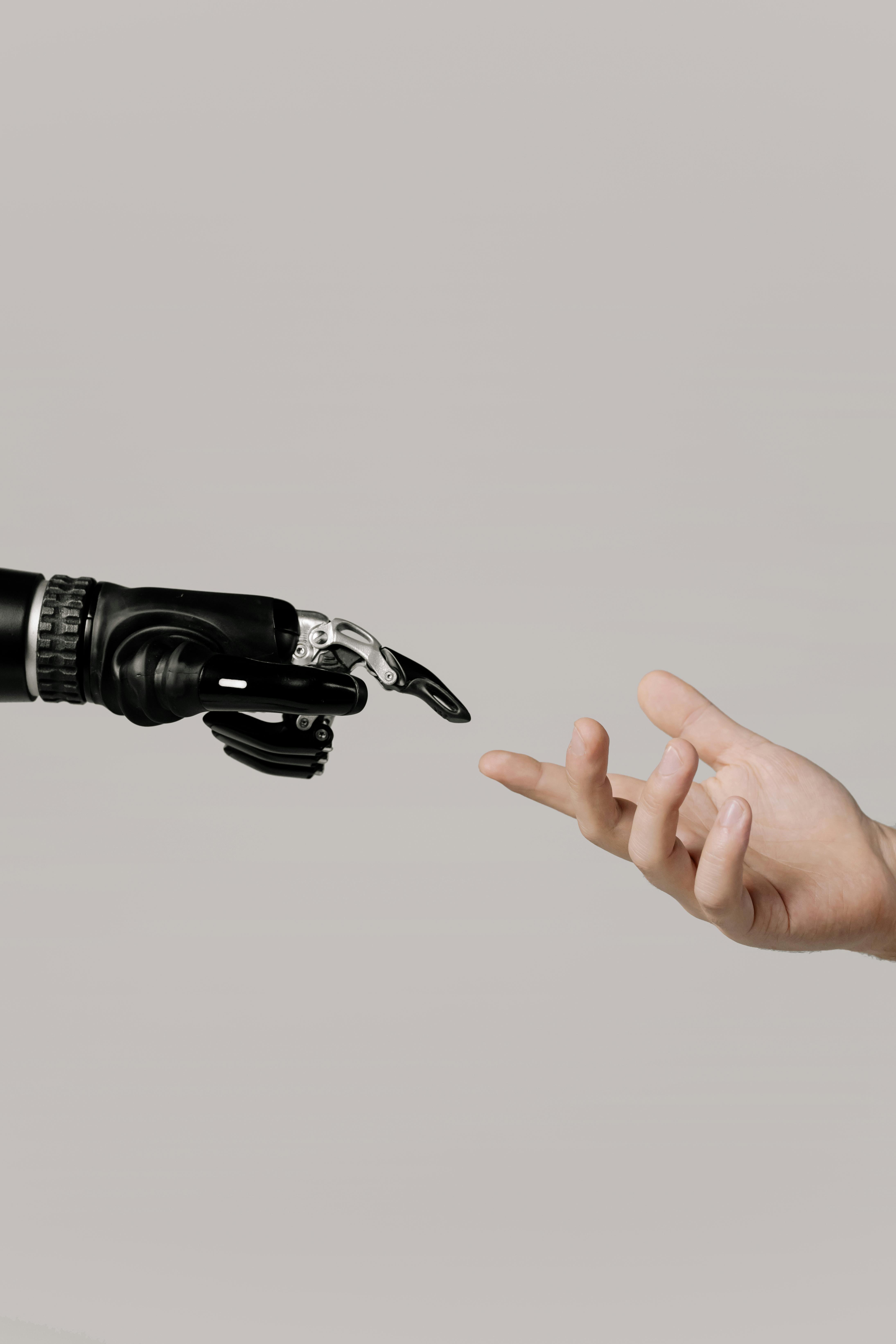Chatbot per WhatsApp with AI: automate your 24/7 customer support
Respond faster, sell more and save resources starting today.

Benefits to implement a chatbot for WhatsApp with AI
Immediate and uninterrupted care
Your chatbot for WhatsApp responds instantly, 24/7, with no waiting times. Your customers receive support even outside of business hours.
Drastic reduction of repetitive tasks
Automate frequently asked questions, reservations, notifications or orders. Free your team from mechanics and focus on strategic tasks.
Smarter conversations
Thanks to AI, your WhatsApp virtual assistant understands the user's intentions, adapts the answers and learns with the use.
Full integration with your business
Our chatbot for WhatsApp Business connects to your CRM, ERP or any system you already use. An AI agent for WhatsApp that doesn't interrupt, but integrates.
Direct increase in sales and satisfaction
A quick response can make the difference between closing or losing a sale. Improve conversion and customer experience in one step.
Our methodology to develop your chatbot for WhatsApp business
We don't just develop a bot: we design an intelligent assistant aligned with your business objectives.
Channel Audit and Objectives
Strategic conversational design
Development and integration
Training and testing
Scalable and upgradable
Launch and continuous improvement
.jpg)

Why choose Milmoh?
We are not a bot agency. We are your strategic partner in automation.
We create chatbots for WhatsApp Business that understand what your company needs: scale without losing control, automate without losing personalization, and selling without friction.
Real expertise in applied artificial intelligence
Automation aligned with your KPIs
360º integration
Full accompaniment
Frequently asked questions about our AI agents for Whatsapp
A chatbot for WhatsApp is an automated virtual assistant that operates within your WhatsApp account or the business version (WhatsApp Business) to manage conversations with customers without relying solely on human agents.
Its value lies in being able to:
- Respond in real time, even outside of working hours.
- Free your team from mechanical and repetitive tasks (FAQs, reservations, follow-up).
- Scale your attention span without multiplying costs.
- This type of automation is key when you detect that “you waste a lot of time on mechanical and repetitive tasks and therefore you are losing efficiency and have an opportunity cost”.
- “WhatsApp automated messages” usually refer to predefined messages that are sent at certain times (for example: “Thank you for contacting”). It has a limited range.
- A chatbot for WhatsApp Business reinforces this service: it automates flows, integrates with business systems (CRM, ERP) and manages multiple types of interaction.
- An AI-powered chat bot for WhatsApp adds the ability to understand language (NLP), learning, adaptability: it's more “intelligent”. It can also be labeled as “AI WhatsApp virtual assistant”, “AI agent for WhatsApp”.
- The difference is in the level of sophistication, integration and business value.
Some of the most common:
- Not clearly defining objectives or KPIs before implementation (which reduces their impact).
- Poorly optimized conversational flows: complex menus, long answers or lack of option to switch to a human agent, which generate frustration.
- Lack of integration with internal systems, which causes the bot to operate in isolation.
- Do not measure or optimize data after launch: the bot “stays there” and does not improve.
- “Forced” operation: do not consider that in an environment like WhatsApp the experience should be fluid, adapted to the channel (short messages, appropriate tone) and that the user has control.
- We start with an audit of your channel (what you use now, what flows exist), which allows us to identify where the bot will provide value.
- We design flows focused on business: conversion, efficiency, retention.
- We integrate with your internal systems so that the chatbot receives and sends data (not just answers).
- We trained the AI agent for WhatsApp and tested it thoroughly before launch.
- We measure the results using specific KPIs: automatic resolution rate, average response time, conversion rate from WhatsApp, reduction in cost per query.
- We offer continuous improvement: the bot is not “install and forget”.
The deadline varies depending on: the complexity of the flows, the degree of integration with internal systems, the requirement for customizing the language and the number of cases to be considered. In general, we can estimate between 4 and 8 weeks for an initial operational version (minimum viable) in a medium-sized company. Then, an improvement, learning and optimization phase is recommended. It's important to define an “MVP” that works, and then scale up.
The cost will depend on: number of flows you want to automate, if it requires complex integrations, if it's just frequent answers or includes more sophisticated functions (ordering, scheduling, CRM).
In addition, there are recurring costs: maintenance, updating the bot, continuous training, analysis of metrics. Being clear about this model is essential so that it does not become a cost center without results.
No. Its objective is not to eliminate the team, but to free them from mechanical and repetitive tasks so that they can focus on higher value cases: complex resolution, sales, loyalty. Also, a good solution contemplates a “step to human” when the bot cannot solve or the user requests it. This builds trust and avoids the feeling of “I'm just talking to a machine”.
- We designed the system so that the bot detects intent, understands variations and has well-defined fallback routes.
- The option of referring a human agent is always included.
- These cases are followed up to feed the subsequent training of the AI agent for WhatsApp, so that he learns from the unexpected and progressively improves.
Some key metrics are:
- Number of conversations initiated by the chatbot.
- Automatic resolution rate (how many queries were resolved without human intervention).
- Average response time.
- Conversion rate from the WhatsApp conversation (for example: how many conversations end in lead, appointment, sale).
- Transfer to a human agent (how many cases needed human passage) and user satisfaction.
- Cost per consultation, savings in agent hours, opportunity cost.
- Measuring these indicators makes it possible to demonstrate that the chatbot is not just a tech tool, but a business lever.
- Define clear objectives before launching.
- Personalized welcome messages, tone aligned with the brand, clear options for the user.
- Simple flows, avoidance of overly complex menus, possibility of human contact.
- Integration of internal systems and data for customization and monitoring.
- Constant monitoring and updating so that it does not become obsolete.
- Transparency: informing the user that they are talking to an assistant and not a person without saying it, to build trust.




